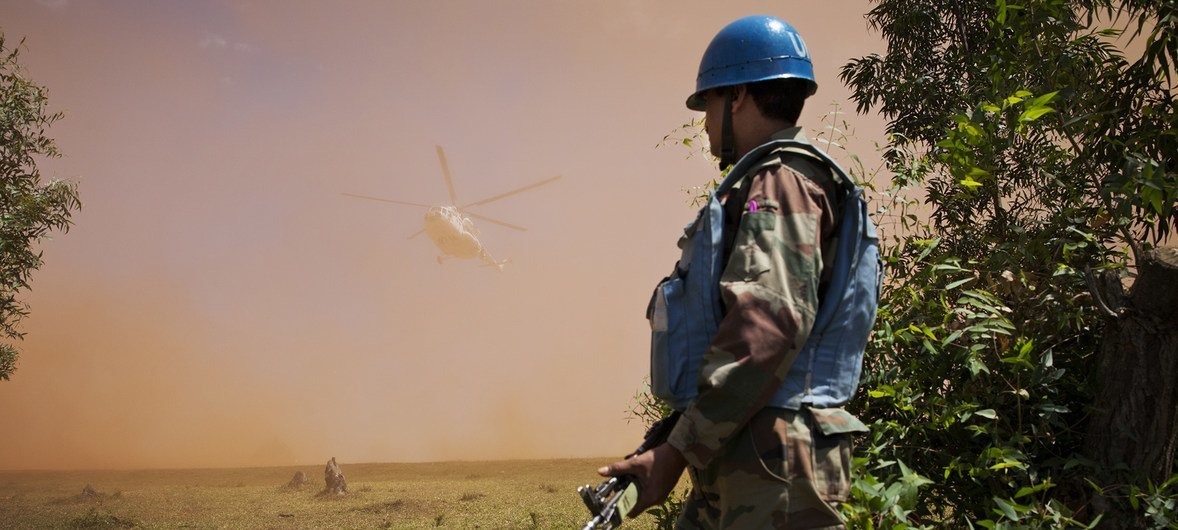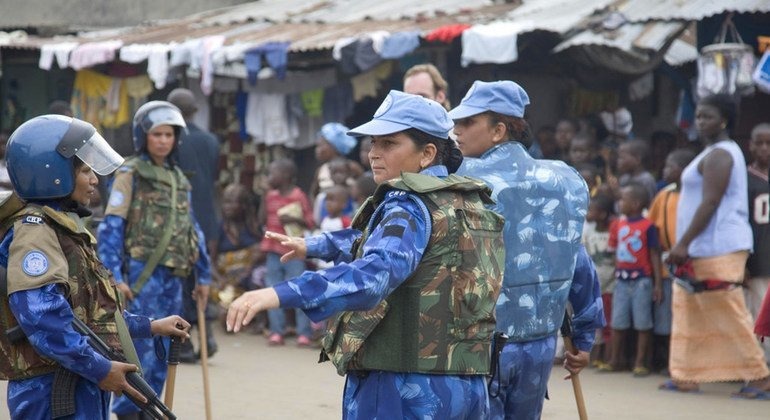Amidst India’s decision to cut its contributions to the United Nations and other international bodies, a senior member of the Indian national security establishment has called for the South Asian giant to withdraw from peace-keeping missions globally, even as New Delhi pushes for permanent membership in the UN Security Council.
Sridhar Vembu, Chief Executive Officer of the global Software as a Service (SaaS) giant Zoho Corporation, tweeted on February 15 that India’s move to reduce its funding of the UN was “a welcome move” and called for India to stop being part of the UN-mandated peace-keeping missions.
He also noted that Indians should not “waste our time and money” with this body when the UN powers do not recognize the world’s most populous nation.
Vembu was conferred with India’s fourth highest civilian award ‘Padmashri’ in 2021 and was appointed to the coveted National Security Advisory Board (NSAB) in February 2021. NSAB is an advisory body under the National Security Council Secretariat and reports to India’s National Security Adviser, Ajit Doval.
India Cuts UN Funding
In the interim budget for 2024-25 presented to parliament, India’s Finance Minister Nirmala Sitharaman slashed the funding for international bodies, including the UN, by 35.16 percent compared to the revised estimates for 2023-24.
For 2024-2025, the interim budget pegged INR558.12 crore for the Ministry of External Affairs to spend on international bodies, including BIMSTEC, SAARC, and the UN.
In a welcome move, India has cut its contribution to the UN.
For the UN powers to not recognise the most populous country in the world means that we should not waste our time and money with this body.
India must also refuse to be part of UN peace keeping missions.…
— Sridhar Vembu (@svembu) February 15, 2024
In the revised estimates (RE) for 2023-2024, the Finance Ministry has provided INR866.70 crore towards contributions for global entities. The regular budget, to be presented later this year after a new Indian government is established by June 2024 as per the precedent, could revise the amount upwards.
The most significant budget cuts for the MEA were towards the UN for 2024-25 at INR175 crore, a 54.25 percent decrease from the 2023-2024 revised estimates, which stood at Rs. 382.54 crore.
“The decrease in contributions towards the UN by the MEA is significant as India has long been calling for reforms in the organization, especially over the composition of its most powerful wing, the United Nations Security Council (UNSC),” Indian online publication The Print commented on the interim budget.
United Nations General Assembly (UNGA) 78th Session President Dennis Frances, during his visit to India in January 2024, acknowledged the South Asian giant’s position and eligibility to be a permanent member of the UNSC, noting that the powerful body was not representative of the current geopolitical realities.
India Among G4 Pressing For UN Reforms
Yet, the move to cut budgets triggered a debate on what the South Asian nation intends to achieve by reducing the funding for multilateral entities amidst its push for reforms in the UN, including expanding the Security Council to include India to reflect its present status as an emerging global power.
India is part of the Group of Four or G4 nations, including Brazil, Germany, and Japan, pressing for the United Nations to effect reforms immediately to reflect current geopolitical realities in which these nations are already reaching the status of global powers.

India is the world’s fifth largest economy with a US$4.1 trillion GDP. It is just behind the US (US$27.9 trillion), China (US$18 trillion), Germany (US$4.7 trillion), and Japan (US$4.2 trillion), according to International Monetary Fund data of February 7, 2024.
The G4 nations support each other’s bids for permanent seats on the United Nations Security Council, and the grouping within the UN aims to achieve a seat on the high table, which provides them veto powers currently enjoyed by the Permanent Five or P5 nations – United States, Russia, United Kingdom, France, and China.
India was last elected to the UNSC as a non-permanent member in June 2020, winning the most popular vote of 184 votes of the total 193 member-states of the UNGA. India was a non-permanent member of the UNSC for the 2021-22 term.
Then, India was the only candidate under the Asia-Pacific category for that year. India’s 2021-22 stint on the UNSC was its eighth, an opportunity that came its way after a 10-year gap.
The UNSC, a powerful arm of the United Nations, is responsible for maintaining global peace and security. UNSC exercises its writ by determining acts of aggression and threats to international peace, apart from deciding on peacekeeping forces deployment under the UN flag and imposing sanctions, including economic, diplomatic, and military, as and when required.

India Is Largets UN Peace-Keeping Force Contributor
India has contributed over 200,000 military and police personnel to UN peacekeeping missions in the last 70 years. As of November 30, 2023, India is the third-highest troop contributor to the UN peacekeeping efforts globally, with 6,073 personnel. Only Nepal, with 6,247 personnel, and Bangladesh, with 6,197 troopers, are contributing more numbers.
While Pakistan, with 4,164 personnel, is in the fifth position among contributors, China is in the eighth position with 2,267 personnel on peacekeeping duty under the UN flag. Among the P5 nations, only France contributes 587 personnel and is in the 28th position among the top 30 contributing nations.
India’s personnel contribution is just about 10 percent of the total 66,839 peacekeepers under the UN, yet it is miles ahead of all other P5 nations’ contributions.
Indian forces have served in 49 of the 71 peacekeeping missions established by the UN worldwide since 1948. Currently, most Indian peacekeepers are in the Democratic Republic of Congo and South Sudan, according to the UN.
- NC Bipindra is a 30-year veteran in journalism specializing in strategic affairs, geopolitics, aerospace, defense, and diplomacy. He has written extensively for the Times of India, New Indian Express, Press Trust of India, and Bloomberg News. He can be reached at ncbipindra (at) gmail.com
- Follow EurAsian Times on Google News




